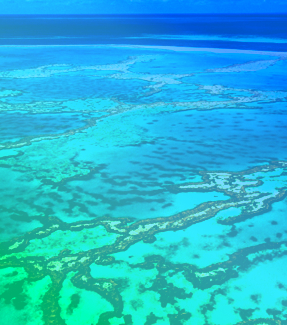IPCC urged to soften wording
 Reports say the Australian government pushed to soften the wording of the latest IPCC report to say the Great Barrier Reef is not yet in crisis.
Reports say the Australian government pushed to soften the wording of the latest IPCC report to say the Great Barrier Reef is not yet in crisis.
The latest major assessment by the IPCC includes a section headed: “The Great Barrier Reef is in crisis”.
In it, experts claimed that the world’s largest coral reef is already heavily impacted by climate change, particularly ocean heating, which leads to more frequent and severe coral bleaching.
The 2,300km reef system has endured mass bleaching events in three of the past six years.
The International Institute for Sustainable Development, a global thinktank, claims that Australian government officials had suggestions for the wording of a report summary, specifically that it should say the reef was “not yet in crisis” and “coral reefs are under increasing pressure, but targeted measures and management could reduce risk”.
The proposal was allegedly opposed by several nations, which argued coral reefs were already experiencing loss and damage. The original wording was ultimately retained in the report by consensus.
Chief executive of Climate Analytics and former IPCC lead author, Bill Hare, says the attempt by the Morrison government to change the wording is in line with ongoing efforts to play down the risk facing the reef.
“The claim that the reef is not yet in crisis is quite fundamentally wrong, but it’s symptomatic of what the Australian government had been doing,” Dr Hare says.
“This is just the latest iteration.
“There are so many things in this report that are so bad, and the government just wants to ignore them because the only way to deal with them is to get [greenhouse gas] emissions down.
“The report shows it is urgent that we increase our emissions reduction target for 2030 to a cut of more than 50 per cent.”
A spokesperson for the environment minister, Sussan Ley, has claimed that Australia wanted different wording that “was both science-based and accurate, in line with normal practice” in the report.
“We fully accept that global climate change needs to be addressed as the biggest threat to the world’s reefs,” the spokesperson said.
“The Great Barrier Reef is the best managed reef in the world and our investments in science-based adaptation, regeneration and on-water management show that local science-based strategies are needed to improve resilience as the world reduces emissions, and that they can have a positive impact.”







 Print
Print